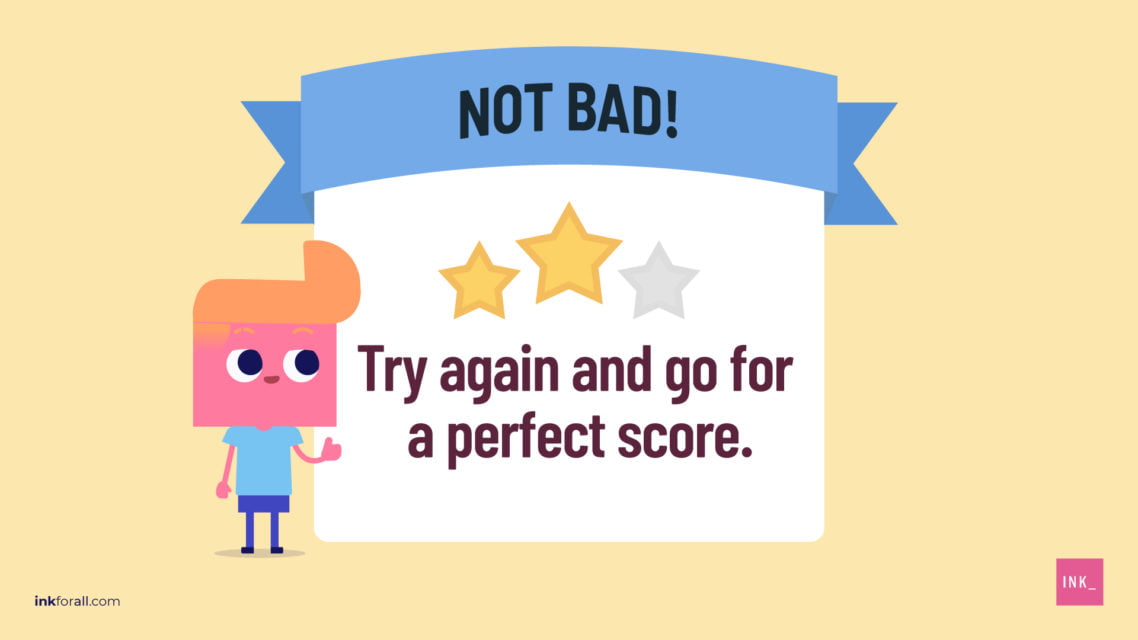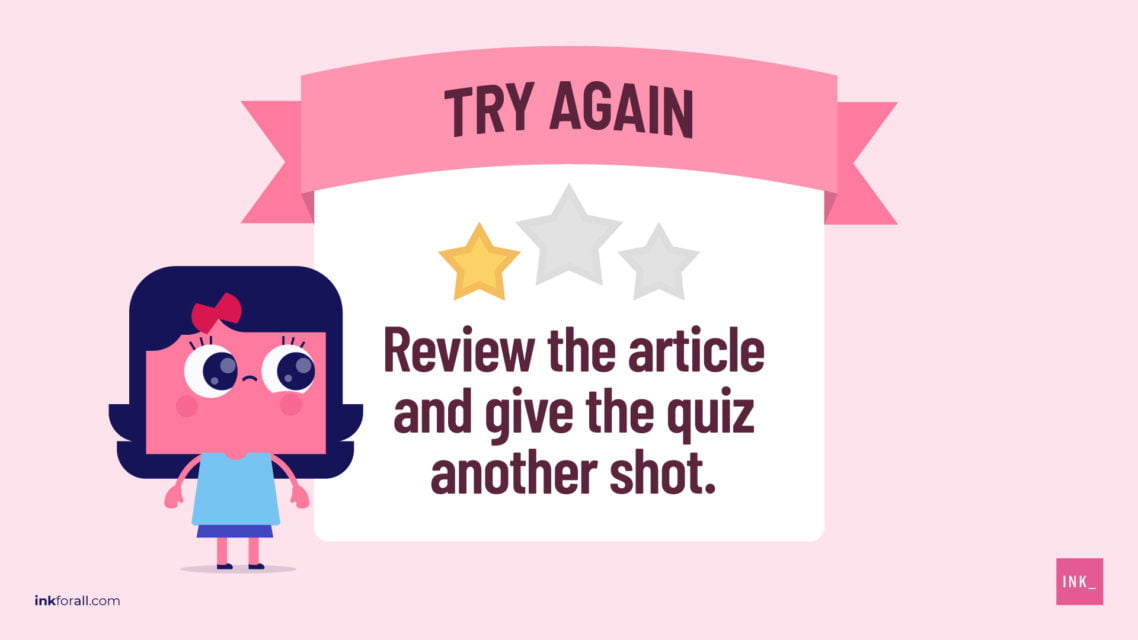Main Esque Takeaways:
- Esque is an adjective suffix that’s used to show likeness. It means resembling, similar to, reminiscent of, in the style of, or having a quality of.
- In the same way that you can attach like to words, you can use esque to create descriptive words to express yourself best (tissue-like fabric; tissue-esque fabric).
- When added to a noun, this suffix creates an adjective that describes a place, person, or object that has a similarity to the noun.
- Addthis versatile suffix to just about any noun, including proper nouns (Someone who reminds you of Victor could be Victor-esque).
- You don’t usually need hyphens when adding esque to a noun, but you can make the stylistic choice to use them.
- Words with this ending such as arabesque and burlesque can also be nouns.
- Esque should not be confused with the similar Spanish phrase es que.
- ⚠️ Watch Out! It’s best to use words ending in esque sparingly. Challenge yourself to explore synonyms and incorporate them into your growing vocabulary.
Esque is a suffix we use to show likeness. It transforms a noun into an adjective that we can then use to describe a person, place, or object that’s similar to the noun. This comprehensive guide covers the meaning of esque and how to use this suffix to create strong comparisons and an elegant tone.
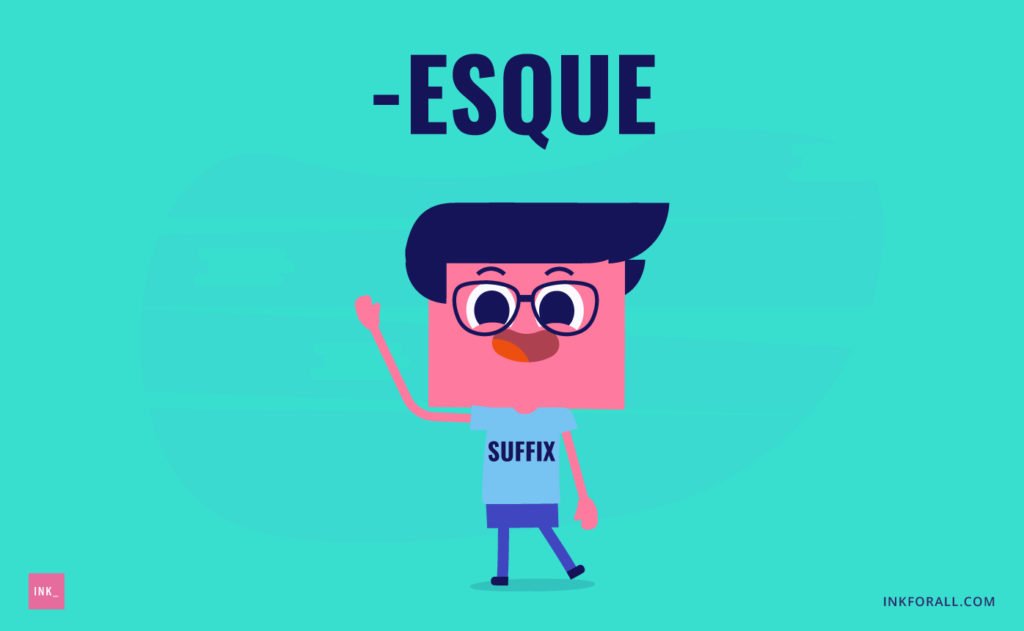

What Does Esque Mean at the end of a Word?
When you add esqueto the end of a word, it creates an adjective, or a descriptive word. In turn, this tells you that something is like the word esque is attached to. For example, a picturesque view is a view that looks like a picture. Therefore, this adjective suffix means resembling, in the style of, like, reminiscent of, similar to, or having a quality of.
📝 Esque Means:
- Like
- Resembling
- In the style of
- Reminiscent of
- Similar to
- Having a quality of
At some point in your life, you’ve probably heard a woman referred to as a statuesque beauty or a view described as picturesque. To better answer the question of what it means if something is esque, try substituting like for esque. Statuesque now becomes statue-like and picturesque becomes picture-like.
How do you Spell Esque?
Spell esque as E-S-Q-U-E.It means like or in the style of. Attach this suffix to the end of practically any noun to describe things with custom adjectives.
How do you Pronounce Esque?
Correctly pronounce the suffix esque first by saying the letter ‘S‘ immediately followed a hard ‘K‘ sound (like at the end of the word ask). In fact, imagine you are saying “ask” but replace the ‘a‘ with an ‘e.’ The hard ‘K‘ sound should abruptly stop the smooth flow of the ‘S‘ sound.
How do you use Esque?
Since esque means “like” or “resembling,”use the suffix sparingly to create descriptive words that show one thing resembles another. First, pick a noun or a proper noun. Second, add esque to the end of the word in the same way you would use like (animal like; animalesque). You can add a hyphen, but you don’t have to. However, if the noun ends in a vowel, help maintain clarity by adding a hyphen before esque (Angora like; Angora-esque). When used correctly, this suffix helps create strong comparisons and a refined tone.
What’s more, it can also help better demonstrate your writing personal style and creativity.
- Use it to create custom adjectives that show that one thing resembles another.
- Add it to the end of virtually any noun or proper noun to create an adjective able to describe a place, an object, or a person.
- It should take the form of the noun + esque (without any spacing between the two).
- You don’t need to use a hyphen, but you can for personal style.
- Use it rarely. Overusing it may seem unimaginative or repetitive. Worse, this may even make your work hard to read.
- Be careful of being redundant. If a word already is an adjective that means “resembling,” adding esque is overkill. Similarly, if a word already contains esque, don’t add like (grotesque-like)
When no preexisting adjective will do, this versatile suffix may be exactly what you need to create a brand-new word. It’s considered the do-it-yourself suffix because you can pair it with pretty much any noun, including a proper noun.
The newly formed word is an adjective that describes a place, an object, or a person that embodies or demonstrates a quality of the noun.
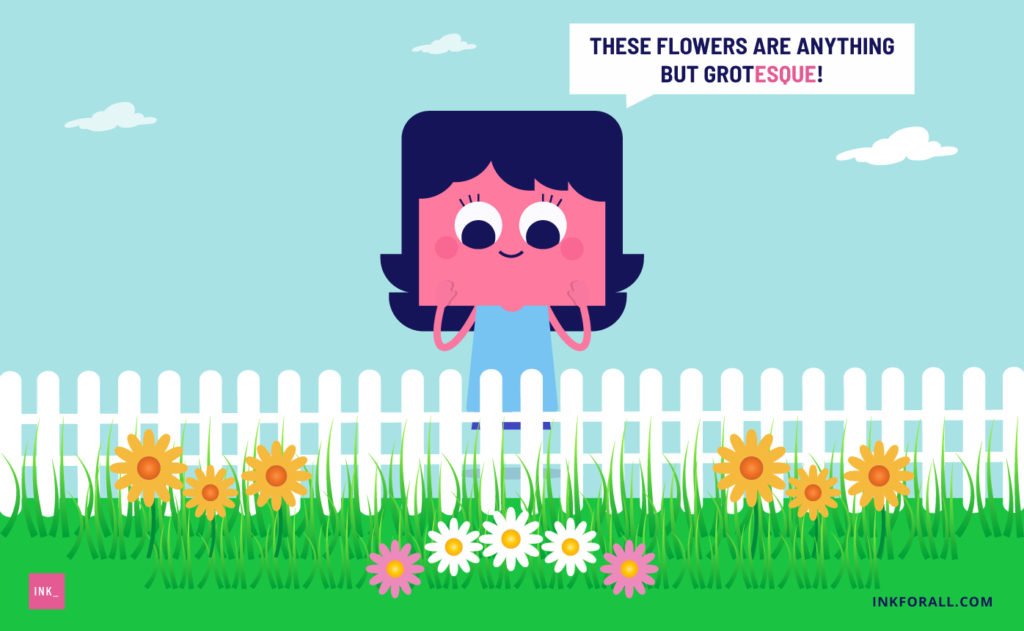

Examples Using Esque to Create DIY Adjectives
To Hyphenate or not to Hyphenate
Established words with this ending such as picturesque or statuesque don’t require a hyphen. In fact, you can add esque to just about any noun without including a hyphen and it would be grammatically correct.
However, a hyphen also isn’t incorrect and including one is typically considered a matter of style.
A hyphen may also be added to indicate to a reader that a particular DIY esque word won’t be found in a dictionary. Although the hyphen makes it no more or less legitimate, it can be helpful in this regard.
How not to use Esque
Never use this suffix with redundant suffixes such aslike.
It’s also important to use esque adjectives sparingly, as overuse can sound awkward and stilted.
Is Esque Formal?
Adding the suffix esque to a word can make it sound more formal. For example, the word “romanesque” has a taste of formality that’s clearly absent in both “roman-ish” and “roman-like.”
However, using esque is also acceptable in informal settings. That’s because you can combine the word with an adjective or noun to coin a new term. For example:
While it’s optional, it’s always a good idea to include hyphens in coined terms. That way, readers will know that the word probably doesn’t exist in any dictionary.
Common -Esque Words
Although words featuring this suffix aren’t always used in everyday conversation or writing, there are several common variations that most will find familiar.
Here is a list of common (and less common) words ending in esque:
- Statuesque
- Grotesque
- Burlesque
- Arabesque
- Gigantesque
- Romanesque
- Picturesque
- Carnivalesque
- Dantesque
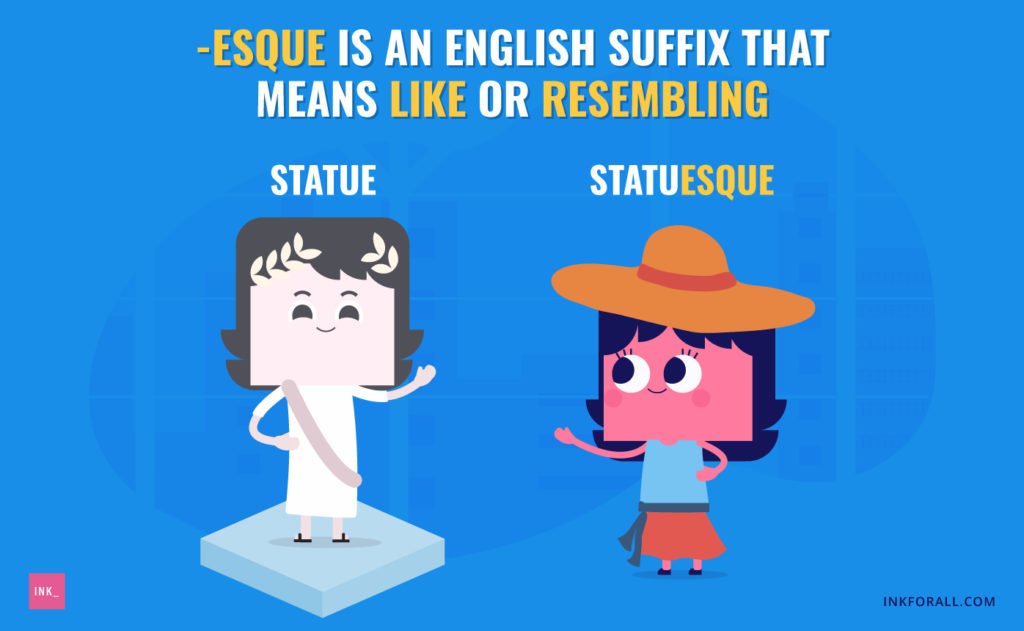

Can a Word Ending in Esque be a Noun?
Yes! Several words that end in esque are actually nouns.
- Arabesque: Arabesque is a ballet term that refers to a position in which the body is supported on one leg. The other leg is extended backward.
- Burlesque: Burlesque is a style of drama or literature marked by caricature or irony.
Can a Word Ending in Esque be a Verb?
In cases such as burlesque, the suffix esque may also help form a verb. For instance, as a verb, burlesque means to imitate in a humorous or mocking way. However, words with this ending are usually adjectives since this suffix typically transforms a noun into a descriptive word, or adjective.
What Does Esque Mean in French?
The Esque suffix comes to English by way of French. The word’s etymology has roots in the Medieval Latin -iscus, which later found its way into Italian as -esco. That eventually became -esque in French, meaning like or in the manner of. It subsequently took on a similar meaning in English and is still used in written and spoken language. In French, as in English, you say something is –esque, meaning it’s similar to the noun it’s attached to.
What Does Es Que Mean?
Some mistakenly may confuse the suffix esque with a two-word Spanish phrase that uses the same letters, es que. Es que has several translations, which vary by context, its place in a sentence, and whether it’s used as an idiom. Es que may translate to:
- is that
- it’s that
- it happens that
- the thing is
EnglishTranslation:I have to take a quiz, but the thing is, I just don’t feel like it.
What Does Picturesque Mean in English?
If you ask someone to name a word ending in esque, picturesque is likely the first one that comes to mind. Often used to describe scenery, the word picturesque indicates visual attractiveness in a way that’s charming, quaint, or suitable for artwork. It may be used to describe prose that’s striking and creates a vivid mental image. This word may also refer to a person or object that’s pleasing or interesting to the eye.
Synonyms for Picturesque
Because esque words should be used sparingly in written English, knowing synonyms for picturesque can be helpful. Similar and substitutable words include:
- Scenic
- Beautiful
- Quaint
- Charming
- Pleasant
- Arresting
- Colorful
- Artistic
- Vivid
- Pretty
- Striking
An online thesaurus is a great resource for finding other appropriate synonyms for picturesque (or other esque words).
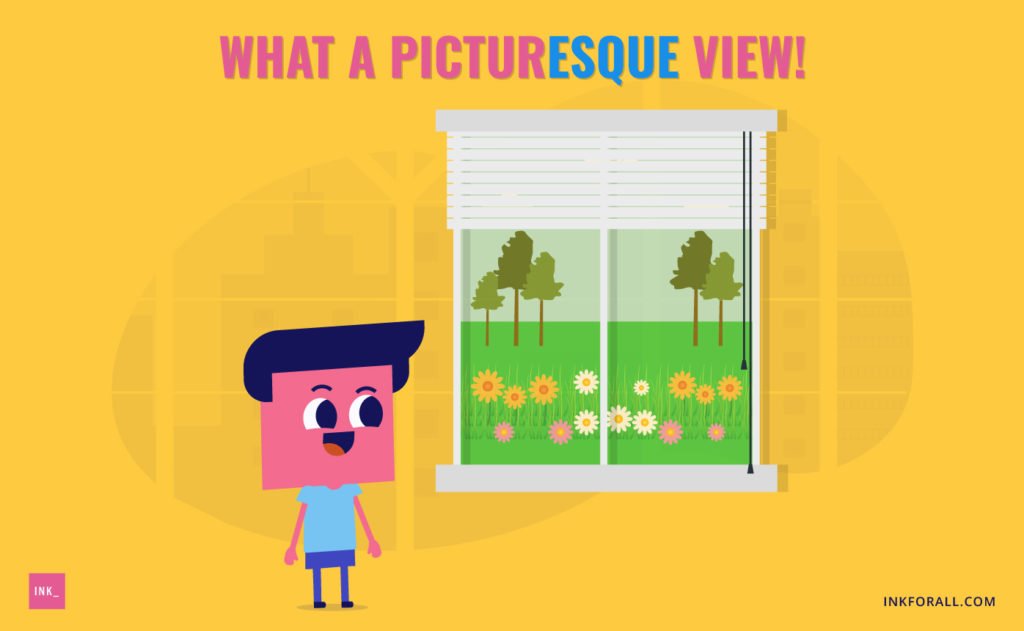

What Does Esq. Mean in law?
The abbreviation esq. is short for esquire, the honorary title for practicing attorneys in the U.S. In English law, Esq. is also used as a title but it means something else; Instead, it signifies a rank that’s higher than a gentleman but directly below a knight. There’s no direct relationship between esque and Esq. The only similarities between these two are the close spellings and the fact that they both tend to come at the end of a proper noun.
Like many other suffixes, this versatile tool can be used to add variety and style to your writing and speech. If you use a light hand and a savvy eye, these five letters can help you define strong comparisons and create adjectives where none existed before.
Do you Know how to use -Esque Properly now? Let’s Test Your Knowledge
Esque Question #1
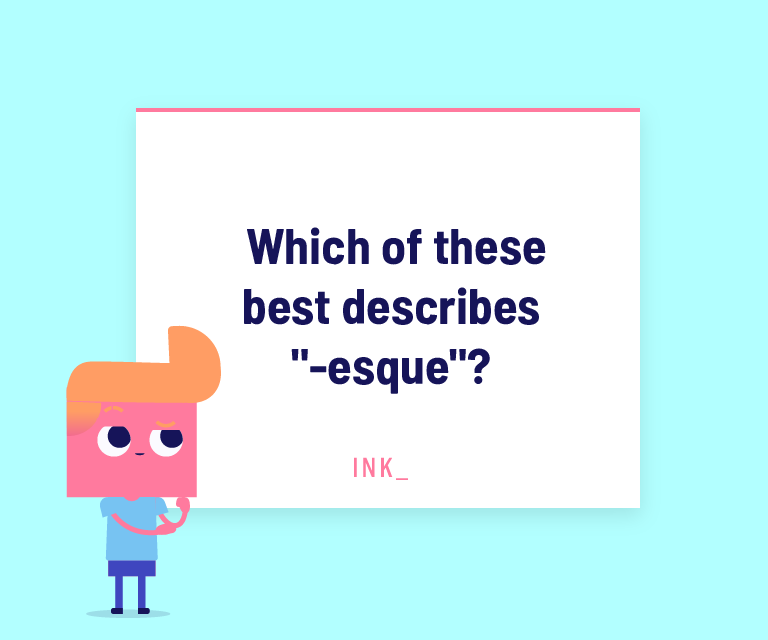

The answer is D. The suffix "-esque" means resembling, reminiscent of, similar to, or having a quality of.
Esque Meaning Question #2
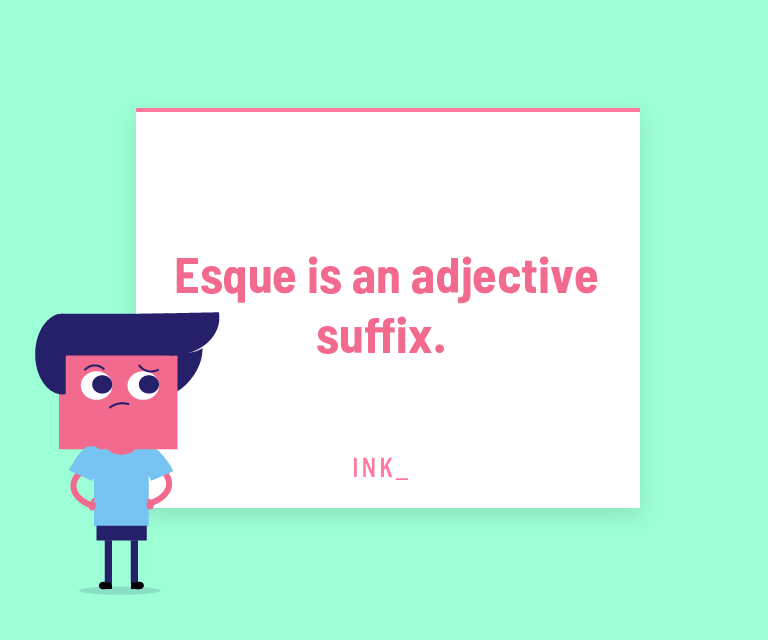

The answer is TRUE. You can pair it with any noun in this form: noun + esque.
Esque Question #3
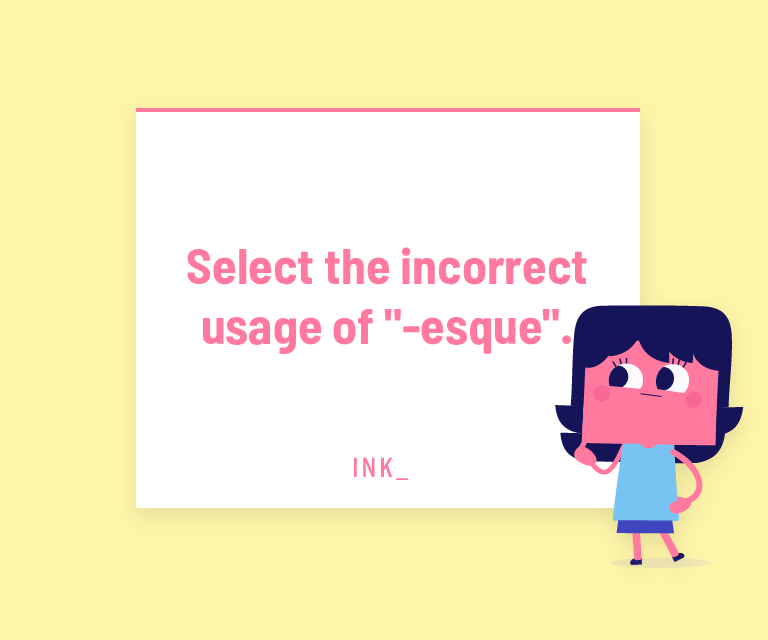

The answer is C. "-esque" should never be used in conjunction with a redundant suffix such as "like".
Esque Definition Question #4
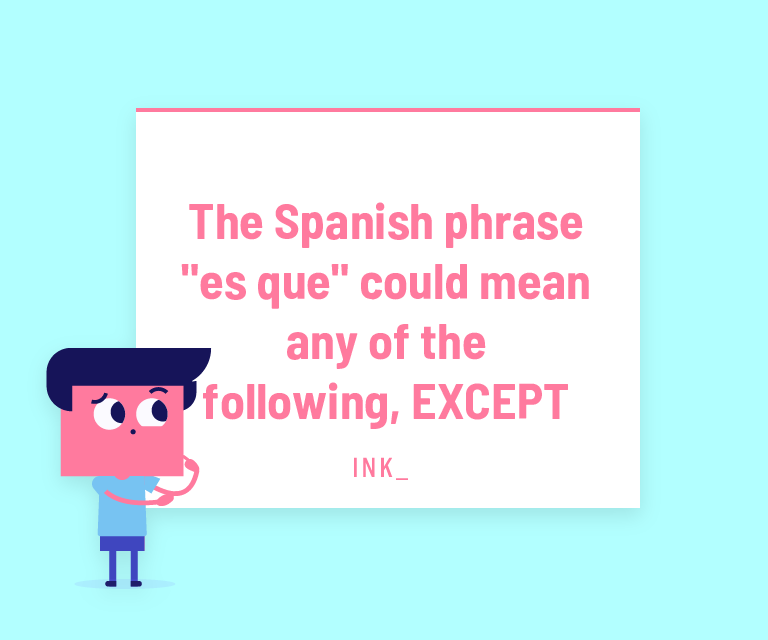

The answer is A. The suffix "-esque" means “similar to”.
Esque Question #5
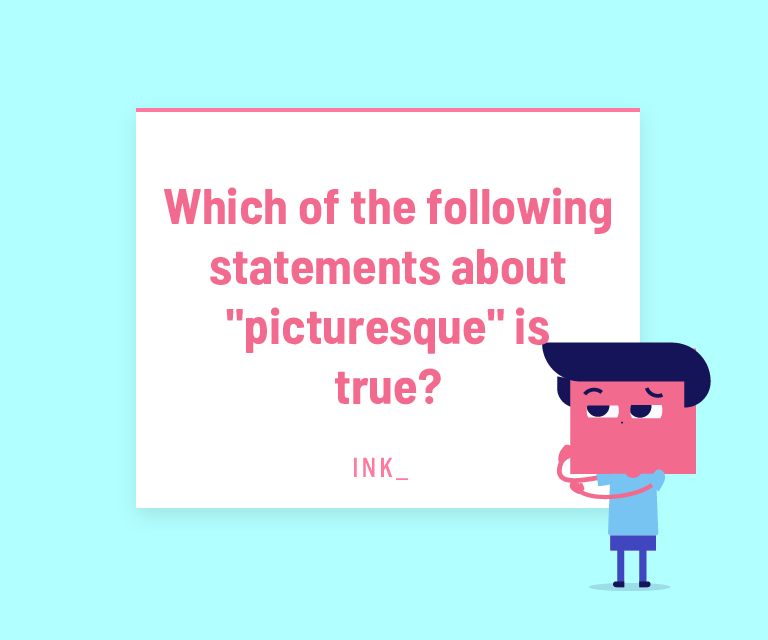

The answer is D. "Picturesque" can also refer to a person or object that's pleasing or interesting to the eye.
Esque Question #6
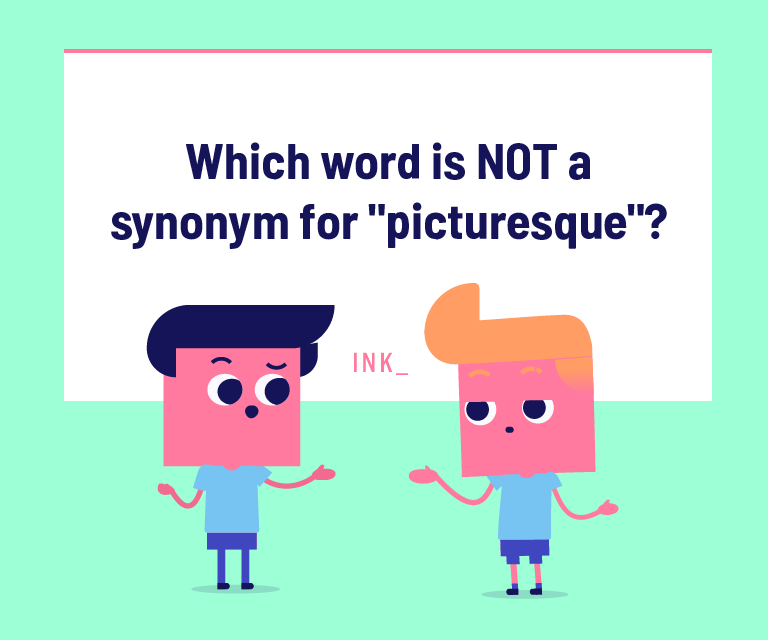

The answer is B. "Dull" is the opposite of "picturesque".


